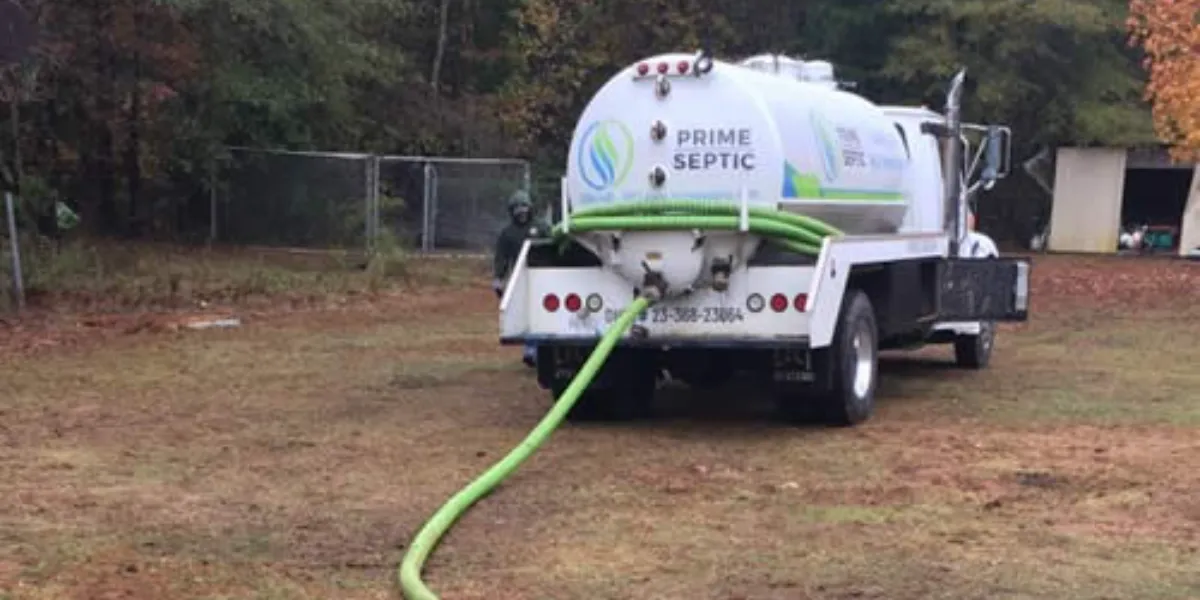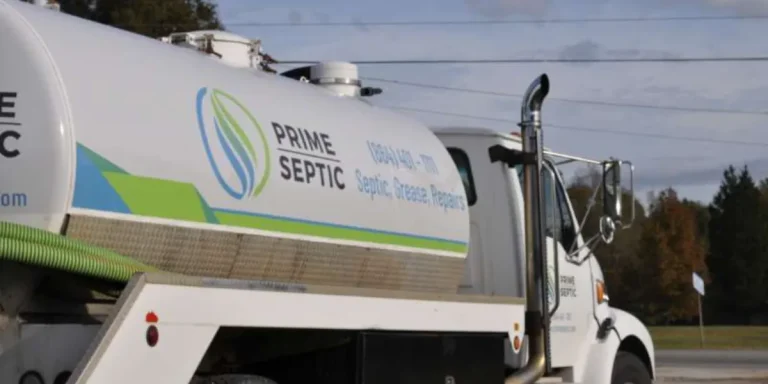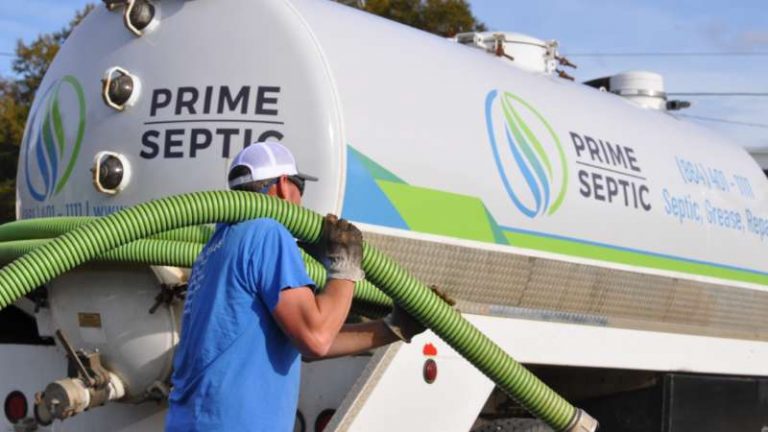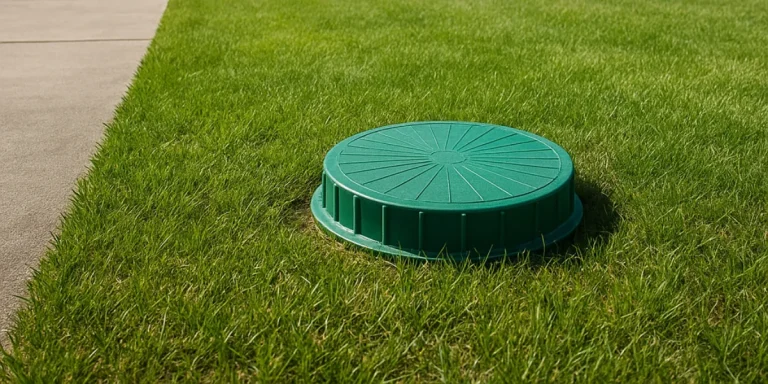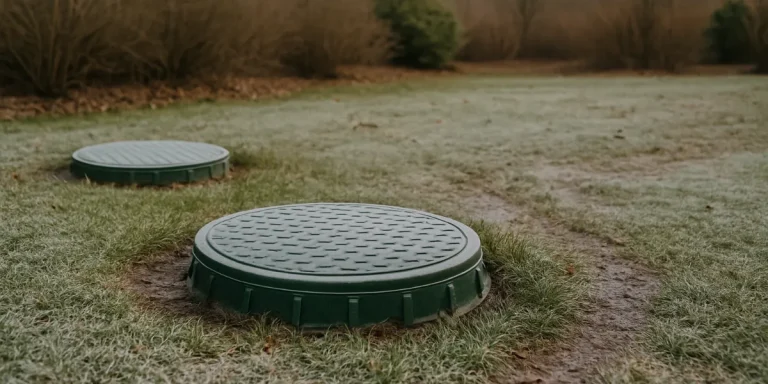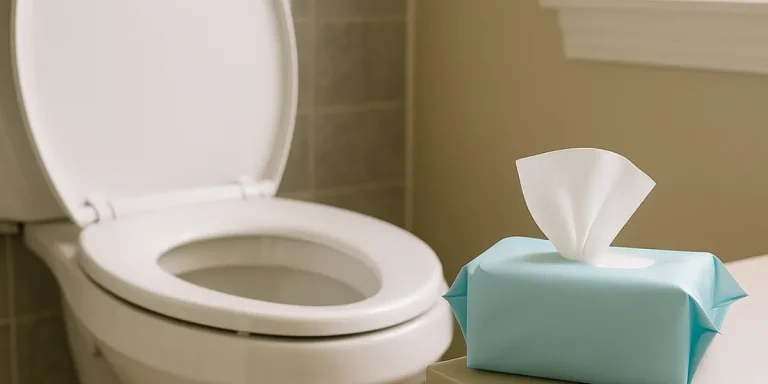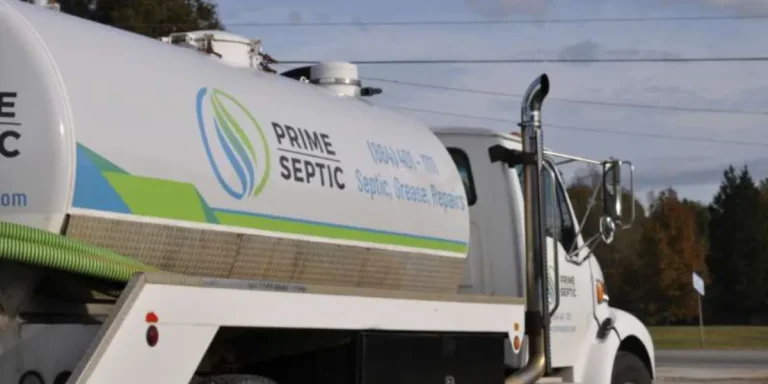5 Signs of Drain Field Failure After Spring Rain
Heavy spring rains are common in South Carolina, especially in areas like Belton, Anderson, and Greenville. While those rains are great for your lawn, they can pose serious risks to your septic system — particularly the drain field. If you’ve noticed strange smells, soggy spots in your yard, or slow drains inside your home, your system may be trying to tell you something.
Knowing the warning signs early can save you from costly repairs, property damage, and potential health hazards.
Why Rain Affects Your Drain Field
Your septic drain field relies on dry, unsaturated soil to function properly. It’s designed to filter wastewater that flows out of your septic tank, allowing it to percolate safely through layers of soil. However, when the ground becomes overly saturated due to heavy or prolonged rain — especially common in spring throughout South Carolina — this filtration process is disrupted.
How excess rainfall causes problems
During and after a major storm, the soil in your drain field can become completely saturated. With nowhere for the wastewater to go, it may start to rise to the surface or flow back into your septic tank. In serious cases, it can even cause raw sewage to back up into your home’s drains and toilets.
This isn’t just a messy inconvenience — it’s a serious health risk and a sign that your septic system may be under significant stress.
Factors that increase the risk
Certain conditions can make your system even more vulnerable during wet weather:
-
- Aging systems may already have compromised drain fields or weakened filtration capacity.
- Clogged or compacted soil reduces absorption, causing faster saturation.
- Poor maintenance, such as infrequent pumping or unaddressed minor issues, can turn a small problem into a major one after a storm.
- Red clay soil, common in parts of South Carolina, naturally holds water longer than sandy or loamy soils, slowing drainage.
If your system was already struggling before the rain, a heavy downpour could push it past the point of failure.
Why spring is the most common time for drain field failure
Spring brings more than just flowers and warmer temperatures — it brings consistent rainfall, stormwater runoff, and changes in groundwater levels. Combine that with increased water usage from spring cleaning, gardening, and guests, and your septic system may have to work harder than usual.
That’s why spring is one of the most common times for septic and drain field issues to appear — and why it's a good time to schedule an inspection or maintenance service if you haven't in a while.
Top 5 Signs Your Drain Field Is Failing
After a rainy spring in South Carolina, your septic system may be under stress — especially the drain field. The drain field plays a critical role in dispersing and filtering wastewater after it leaves your septic tank. When it fails, it can cause serious issues inside and outside your home.
If you live in Belton, Anderson, Greenville, or nearby areas, here are five clear signs that your drain field may be failing after heavy rain.
1. Standing Water or Soggy Soil
Persistent puddles or soggy spots in your yard are one of the earliest and most visible red flags. After rainfall, your drain field should be able to absorb moisture and return to normal within a day or two. If the ground remains wet, spongy, or waterlogged for several days, your system may be overwhelmed.
What to look for:
-
-
- Large puddles that remain long after the rain has stopped
- Repeated wet spots in the same part of your yard
- Grass that feels squishy or unstable when you walk on it
-
This usually means that wastewater is not filtering into the soil properly and could be surfacing in your yard — a sign your drain field needs immediate attention.
2. Foul Odors Near the Tank or Drain Field
Septic odors are hard to miss and shouldn’t be ignored. If you smell a strong, unpleasant odor near the septic tank or drain field, especially after rain, it’s likely due to wastewater surfacing or lingering just below the ground. A healthy septic system should not produce strong smells outside your home.
Common smells include:
-
-
- A rotten egg or sulfur-like odor
- Musty or moldy sewer gas scent
- Stronger smells during or after wet weather
-
These smells can also creep into your home through drains if the system is backing up, making the problem not only unpleasant but potentially hazardous to your health.
3. Slow Drains or Backups in the Home
Your plumbing is often the first place you’ll notice a problem. If your sinks, toilets, or tubs begin draining slower than usual — particularly after rainfall — it could be a sign your drain field is saturated and struggling to keep up.
Warning signs to watch for:
-
-
- Water drains slowly from fixtures
- Gurgling or bubbling sounds in pipes after flushing
- Wastewater backing up into tubs or floor drains
-
If more than one drain is affected at the same time, the issue is likely with the septic system and not just an isolated clog.
4. Lush, Fast-Growing Grass in One Area
It may seem like a good thing at first — one part of your lawn is greener and fuller than the rest. But if that area happens to be directly over your drain field, it could be a sign that wastewater is leaking into the soil and feeding the grass with nutrients it shouldn’t be getting.
You might notice:
-
-
- A noticeably greener or thicker patch of grass
- Uneven lawn growth that doesn’t match the rest of your yard
- Damp or soft ground in the same spot
-
This symptom is especially common in warmer months like May and June, when growing conditions and moisture combine.
5. Septic Alarms or Dose Pump Issues
Many modern systems include a high-water alarm or use a dose pump to move wastewater to the drain field. If your alarm is going off more frequently or the pump is running non-stop after a storm, it’s a strong indication that your system is overloaded or your drain field isn’t dispersing effluent effectively.
Signs of trouble include:
-
-
- Alarm sounding more often after rainy weather
- Pump running constantly or cycling more frequently
- Tank levels staying high instead of lowering after a pump-out
-
In these cases, the problem can escalate quickly — and ignoring it could lead to system failure.
What to do if you notice these signs
Don’t wait for the problem to fix itself — it won’t. If you notice any of these signs, especially after heavy rain, it’s time to call a septic professional. At Prime Septic, we offer thorough septic system inspections and expert drain field repairs. Our experienced team can pinpoint the issue, explain your options, and fix the problem before it turns into a major emergency.
Whether you need a septic tank pumping, a camera inspection, or a full drain field restoration, we’re here to help.
Proudly serving Belton and surrounding areas
Prime Septic is based in Belton, South Carolina and proudly serves customers across:
If you're outside these towns but nearby, reach out — we often service homes in neighboring areas as well.
Call Today for Expert Septic Help
Think your drain field might be failing? Don’t ignore the signs.
Contact Prime Septic for trusted, professional service in Belton and beyond. Whether you need an inspection, pumping, or drain field repair, we’re ready to solve the problem and protect your home.
Call now or request a free estimate — we serve Anderson, Greenville, Laurens, and Pickens County with fast, friendly, and reliable septic service.

